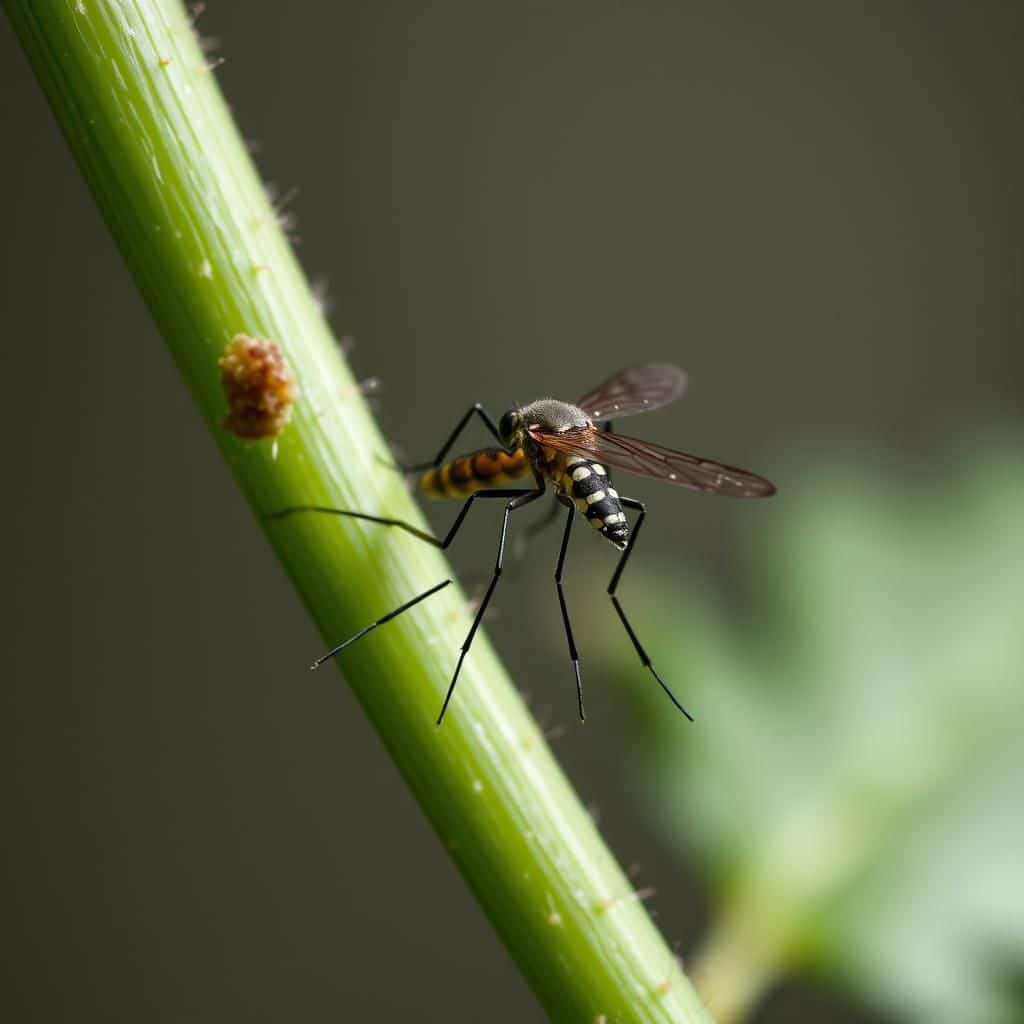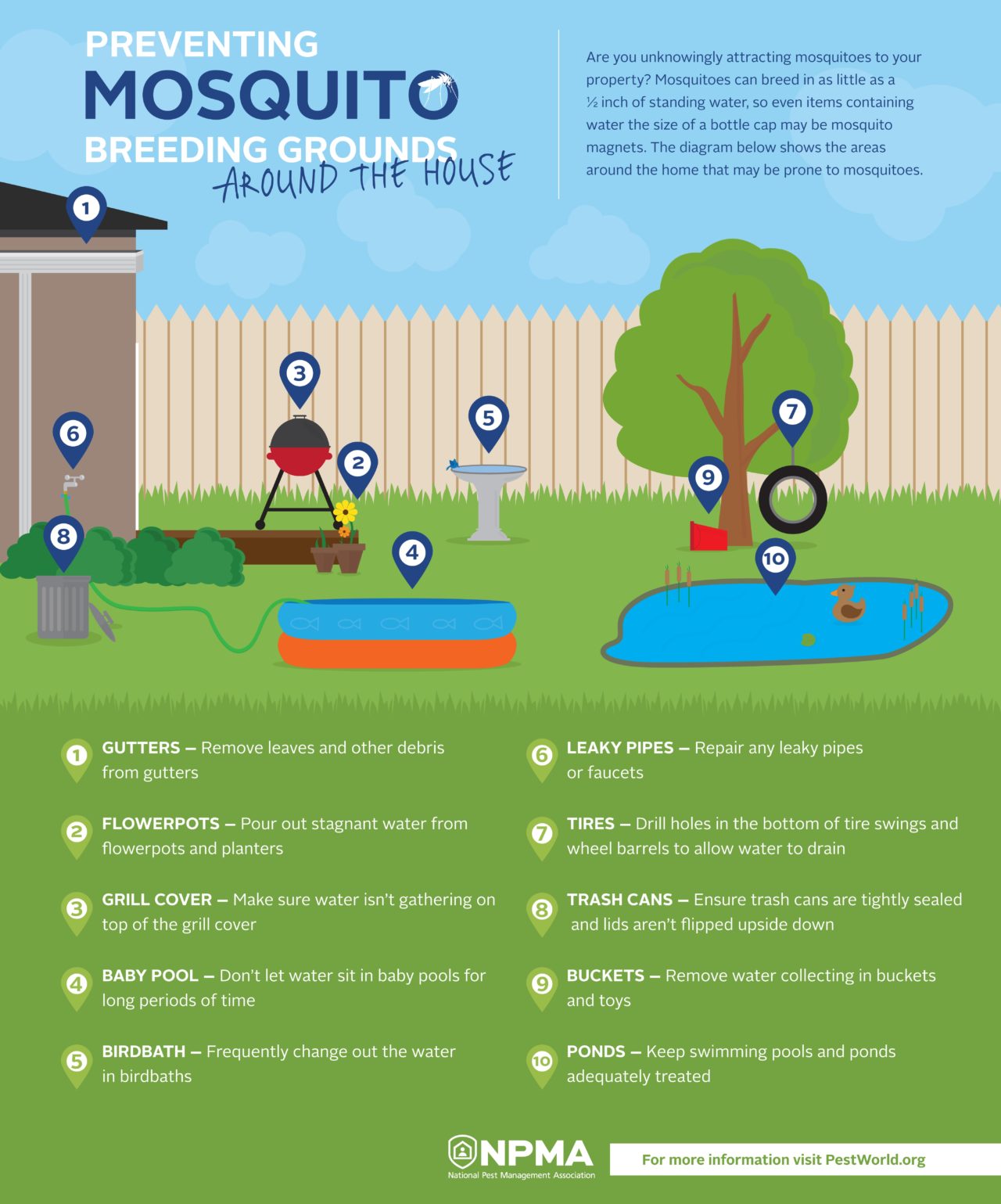What Plants Keep Mosquitoes Away? Discover the Best Natural Solutions for Your Home and Garden

As warmer months approach, the presence of mosquitoes can become a nuisance, invading our outdoor spaces and disrupting our enjoyment of nature. While chemical repellents are commonly used to ward off these pests, many homeowners seek natural alternatives that are safe for both the environment and their families. This article explores the plants that are known to repel mosquitoes effectively. By incorporating these natural solutions into your home and garden, you can create a mosquito-free oasis, enhancing your outdoor experience while maintaining a healthy ecosystem. Discover the best plants that can help you reclaim your space from these unwelcome visitors.
Plants That Repel Mosquitoes
Certain plants are known for their natural ability to keep mosquitoes at bay, thanks to the potent oils and compounds they contain. Plants like citronella, lavender, and marigold emit strong fragrances that are unappealing to mosquitoes, making them a popular choice for gardens and patios. By incorporating these plants into your landscape, you can create a more enjoyable outdoor atmosphere while reducing the likelihood of mosquito bites. Additionally, many of these plants can be easily grown in pots or directly in the soil, offering a practical solution for pest control without the need for chemical repellents.
Citronella
Citronella is one of the most widely recognized mosquito-repellent plants. The oil extracted from its leaves contains compounds that mask scents that attract mosquitoes, providing a natural barrier against these pests. Often used in candles and outdoor products, planting citronella in your garden can help reduce mosquito populations and create a more pleasant outdoor environment. Its tall, grassy appearance also adds greenery to your landscape.
Lavender
Known for its beautiful purple flowers and calming aroma, lavender is not just pleasing to humans but also repellent to mosquitoes. The strong scent of lavender oil is particularly effective in deterring these insects, making it a perfect addition to gardens and patios. In addition to its insect-repelling qualities, lavender attracts beneficial pollinators, enhancing the ecological balance in your garden while providing a natural pest control solution.
Marigold
Marigolds are vibrant, hardy flowers that are often planted in gardens for their beauty as well as their usefulness in pest control. They contain a compound called pyrethrum, which is a common ingredient in many insect repellents. When planted around the perimeter of a garden or throughout flower beds, marigolds can deter mosquitoes and other pests, making them an effective and stylish addition to your landscaping efforts.
Pennyroyal
Pennyroyal, a member of the mint family, has a strong minty scent that is particularly offensive to mosquitoes. This herb can be grown as a ground cover in gardens, where its fragrance can effectively repel insects. However, it’s important to note that while pennyroyal can be an effective deterrent, it should be handled with care, as it can be potentially toxic if ingested or applied in concentrated forms.
Basil
Basil is not only a popular culinary herb but also a natural mosquito repellent. Certain varieties, particularly Thai basil, have strong scents that deter mosquitoes. You can grow basil in pots on your patio or in your garden to enjoy its aromatic qualities while keeping pests at bay. Furthermore, freshly harvested basil can be used in cooking, offering dual benefits of pest control and culinary delight.
| Plant | Repellent Duration | Growth Conditions |
|---|---|---|
| Citronella | Long-lasting | Full sun, well-drained soil |
| Lavender | Moderate | Full sun, dry soil |
| Marigold | Moderate | Full sun, well-drained soil |
| Pennyroyal | Short | Partial shade, moist soil |
| Basil | Short to moderate | Full sun, well-drained soil |
What plants repel mosquitoes the most?

Several plants are known for their ability to repel mosquitoes effectively. These plants contain natural oils and compounds that not only deter mosquitoes but can also enhance the fragrance of your garden or living space. Here are some of the most effective plants that can help keep these insects at bay:
1. Lemon Balm: This plant belongs to the mint family and has a strong lemon scent due to its high citral content, which mosquitoes dislike.
2. Citronella Grass: Often used in candles and sprays, this grass emits strong scents that mask other attractants to mosquitoes.
3. Lavender: Besides its delightful scent, lavender oil is known for repelling mosquitoes. It works effectively when applied to the skin or placed around the living area.
4. Basil: Not only a culinary herb, basil's scent is effective at repelling mosquitoes, making it a great choice for both the kitchen garden and outdoor spaces.
5. Marigolds: These vibrant flowers contain pyrethrum, a compound found in many insect repellents. Their strong scent is unappealing to mosquitoes.
Lemon Balm: A Sweet Scented Mosquito Repellent
Lemon balm is an aromatic herb that thrives in sunny areas and can grow quite rapidly. Its strong lemony fragrance is not only refreshing but also effective in repelling mosquitoes. The essential oils present in its leaves contain citral, which is known to deter many types of insects.
- Easy to grow in pots or gardens.
- Can be used in teas or culinary dishes.
- Cocktail of essential oils makes it a natural choice for homemade repellents.
Citronella Grass: The Classic Mosquito Deterrent
Citronella grass is perhaps the most famous plant used to repel mosquitoes. Its oil contains compounds that can disrupt the sensory receptors of mosquitoes, making it difficult for them to locate hosts. This grass thrives in warm climates and can be planted directly into the ground or in pots.
- Highly effective when burned as candles.
- Releases strong fragrance that masks other enticing smells.
- Requires minimal care and grows well in sunny areas.
Lavender: Beauty and Repellency Combined
Lavender is not just known for its beautiful purple flowers and calming properties; it is also a potent mosquito repellent. The oil extracted from lavender contains linalool, a compound that is toxic to mosquitoes. This plant can add both beauty and functionality to any garden.
- Great for creating a relaxing atmosphere.
- The flowers can be dried and used in sachets or potpourri.
- Can be grown indoors or outdoors.
Basil: The Culinary Herb with Benefits
Basil is a versatile herb found in many kitchens, but it also serves as a natural mosquito repellent. The scent of basil is overpowering to mosquitoes, making it an excellent choice for those who cook with fresh herbs. Growing basil can discourage mosquito presence in your garden or patio area.
- Widely used in cooking and salad dressings.
- Can be easily propagated from cuttings.
- Provides benefits as a companion plant in vegetable gardens.
Marigolds: Brighten Up Your Space While Repelling
Marigolds are known for their vibrant colors and ability to repel a variety of insects, including mosquitoes. They contain pyrethrum, which is often used in commercial insect repellent products. By planting marigolds around your home or garden, you can effectively create a barrier against mosquito activity.
- Easy to maintain and grow, even for beginners.
- Attractive to pollinators like bees and butterflies.
- Can be planted alongside vegetables to deter pests.
How do I mosquito proof my yard?


To effectively mosquito proof your yard, several strategies can be implemented to reduce the mosquito population and make your outdoor space more enjoyable. Here are the steps you can take to create a less hospitable environment for these pests.
Eliminate Standing Water
One of the most critical steps to mosquito-proof your yard is to eliminate any sources of standing water, as many species of mosquitoes breed in stagnant water. It is essential to regularly check your yard for potential breeding sites.
- Inspect and empty flower pots and trays.
- Clear out gutters and downspouts that may be clogged and holding water.
- Ensure that bird baths are changed regularly, ideally every few days.
- Fill or drain puddles in your yard.
- Check and fix any leaks in your irrigation system.
Maintain Your Landscape
A well-maintained landscape can deter mosquitoes by removing their hiding spots and decreasing humidity levels. By managing vegetation and debris, you can create an uninviting environment for mosquitoes.
- Trim back thick vegetation and shrubs where mosquitoes may lurk.
- Keep your lawn well-mown; a shorter lawn can reduce shady areas.
- Remove any fallen leaves or yard debris that can hold moisture.
- Consider using decorative rocks or gravel in garden beds to reduce water retention.
- Use plants that are known to repel mosquitoes, such as lavender or marigolds.
Install Mosquito Traps
Using mosquito traps can help significantly in reducing the population by capturing and killing adult mosquitoes. This method works well in conjunction with other preventive measures.
- Invest in various types of mosquito traps, such as carbon dioxide or light traps.
- Place traps strategically around your yard, particularly near breeding sites.
- Regularly check and maintain traps according to manufacturer instructions.
- Use traps that are safe for pets and wildlife to ensure no unintended harm.
- Consider DIY traps using household items if you're looking for cost-effective solutions.
Utilize Natural Repellents
Natural repellents can complement other mitigation strategies to enhance your protection against mosquitoes. You can use specific plants or natural oils that tend to repel mosquitoes effectively.
- Plant citronella grass or other aromatic herbs, such as basil and rosemary.
- Use essential oils like eucalyptus, tea tree, or peppermint in outdoor sprays.
- Create a homemade mosquito repellent using vinegar and water in a spray bottle.
- Encourage the presence of bat houses, as bats can consume large numbers of mosquitoes.
- Use mosquito-repelling candles made with natural ingredients during gatherings.
Install Physical Barriers
Creating barriers can significantly help in reducing mosquito access to your yard. These can include physical structures or devices designed to keep mosquitoes at bay.
- Install mosquito nets or screens over patios and decks.
- Use an outdoor fan when spending time outside, as the wind can disrupt mosquitoes' flights.
- Consider the use of mesh screens for windows and doors to prevent indoor infiltration.
- Set up pergolas or other shaded structures that can be fitted with screens.
- Use outdoor misting systems that release insecticides at scheduled intervals.
Questions from Our Readers
What are some plants that effectively repel mosquitoes?
Citronella, lavender, basil, and marigolds are some of the most effective plants for repelling mosquitoes. These plants emit strong fragrances that mask the scents that attract mosquitoes, making your outdoor spaces more pleasant and less infested.
How can I use these plants to keep mosquitoes away?
You can plant them in your garden, place pots on your patio, or grow them indoors in sunny spots. By surrounding your sitting areas with these insect-repelling plants like citronella or lavender, you create a natural barrier that helps to keep mosquitoes at bay.
See also:
Are there any specific conditions these plants need to thrive?
Most of these mosquito-repelling plants prefer well-drained soil and a good amount of sunlight. For example, basil thrives in warm temperatures and needs at least six hours of direct sunlight each day for optimal growth and effectiveness.
Can I extract essential oils from these plants for enhanced protection?
Yes, many of these plants can be used to create essential oils that are even more effective at repelling mosquitoes. For instance, extracting oil from citronella or lavender and applying it to your skin or using it in a diffuser can provide an additional layer of protection against mosquito bites.

If you want to read more articles like What Plants Keep Mosquitoes Away? Discover the Best Natural Solutions for Your Home and Garden, we recommend you check out our Plants category.
Leave a Reply

Related Articles